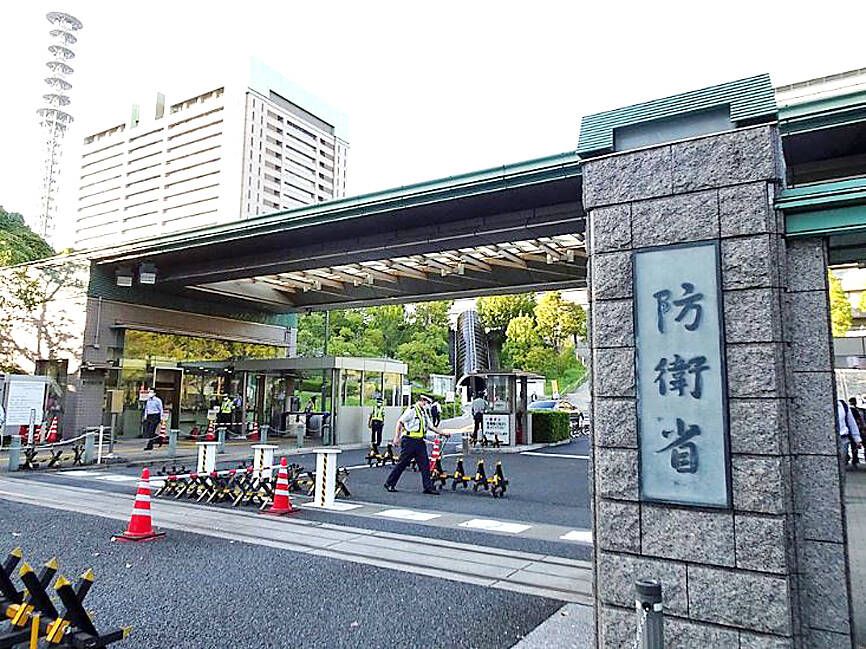China launched 1.4 billion cyberattacks against Taiwan from September 2019 to August 2020, a new report by a Japanese government-funded think tank said.
The attacks largely aimed to spread disinformation in Taiwan, with its authors assessing China’s cognitive warfare against Taiwan to be a “great threat,” the Japanese Ministry of Defense-affiliated Defense Research Institute said on Friday.
The institute has published its China Security Report annually since 2011. This year’s report focused largely on cognitive warfare.

Photo: CNA
The Chinese People’s Liberation Army has been undertaking large-scale reforms since 2015, including the establishment of regional command centers for its land, sea and air forces, and increasing direct participation in military affairs by party members, the report said.
They also included setting up an army intelligence-gathering wing that engages in cyber and cognitive warfare, it said.
The new division disseminates propaganda and disinformation through traditional and social media platforms. It focuses heavily on promoting Taiwan’s unification with China, which it does prior to elections in Taiwan by assisting the campaigns of pro-China candidates, the report said.
The cyberattacks were intended to destroy or steal data from Taiwan’s political, economic and military institutions, and to sow panic among Taiwanese during China’s navy and air force exercises around the nation, it said.
China has also created fake news stories purported to be from Taiwan, in attempts to damage Taiwan’s international reputation, it said.
For example, in April 2020, China disseminated a false news story in which WHO Director-General Tedros Adhanom Ghebreyesus accused Taiwan of racial discrimination, and then tried to make it appear that Taiwan itself had created the story, it said.
China also uses its media outlets to produce propaganda aimed at lowering morale and causing fear among Taiwanese, it said.
For example, following Russia’s invasion of Ukraine, a Chinese state-run tabloid published a report that said the US’ failure to commit troops to Ukraine’s defense should be seen as evidence that it would also not commit troops to defend Taiwan.
The report also provided examples of former Taiwanese politicians and military officials being employed by China for espionage.

AT RISK: The council reiterated that people should seriously consider the necessity of visiting China, after Beijing passed 22 guidelines to punish ‘die-hard’ separatists The Mainland Affairs Council (MAC) has since Jan. 1 last year received 65 petitions regarding Taiwanese who were interrogated or detained in China, MAC Minister Chiu Chui-cheng (邱垂正) said yesterday. Fifty-two either went missing or had their personal freedoms restricted, with some put in criminal detention, while 13 were interrogated and temporarily detained, he said in a radio interview. On June 21 last year, China announced 22 guidelines to punish “die-hard Taiwanese independence separatists,” allowing Chinese courts to try people in absentia. The guidelines are uncivilized and inhumane, allowing Beijing to seize assets and issue the death penalty, with no regard for potential

STILL COMMITTED: The US opposes any forced change to the ‘status quo’ in the Strait, but also does not seek conflict, US Secretary of State Marco Rubio said US President Donald Trump’s administration released US$5.3 billion in previously frozen foreign aid, including US$870 million in security exemptions for programs in Taiwan, a list of exemptions reviewed by Reuters showed. Trump ordered a 90-day pause on foreign aid shortly after taking office on Jan. 20, halting funding for everything from programs that fight starvation and deadly diseases to providing shelters for millions of displaced people across the globe. US Secretary of State Marco Rubio, who has said that all foreign assistance must align with Trump’s “America First” priorities, issued waivers late last month on military aid to Israel and Egypt, the

‘UNITED FRONT’ FRONTS: Barring contact with Huaqiao and Jinan universities is needed to stop China targeting Taiwanese students, the education minister said Taiwan has blacklisted two Chinese universities from conducting academic exchange programs in the nation after reports that the institutes are arms of Beijing’s United Front Work Department, Minister of Education Cheng Ying-yao (鄭英耀) said in an exclusive interview with the Chinese-language Liberty Times (the Taipei Times’ sister paper) published yesterday. China’s Huaqiao University in Xiamen and Quanzhou, as well as Jinan University in Guangzhou, which have 600 and 1,500 Taiwanese on their rolls respectively, are under direct control of the Chinese government’s political warfare branch, Cheng said, citing reports by national security officials. A comprehensive ban on Taiwanese institutions collaborating or

France’s nuclear-powered aircraft carrier and accompanying warships were in the Philippines yesterday after holding combat drills with Philippine forces in the disputed South China Sea in a show of firepower that would likely antagonize China. The Charles de Gaulle on Friday docked at Subic Bay, a former US naval base northwest of Manila, for a break after more than two months of deployment in the Indo-Pacific region. The French carrier engaged with security allies for contingency readiness and to promote regional security, including with Philippine forces, navy ships and fighter jets. They held anti-submarine warfare drills and aerial combat training on Friday in